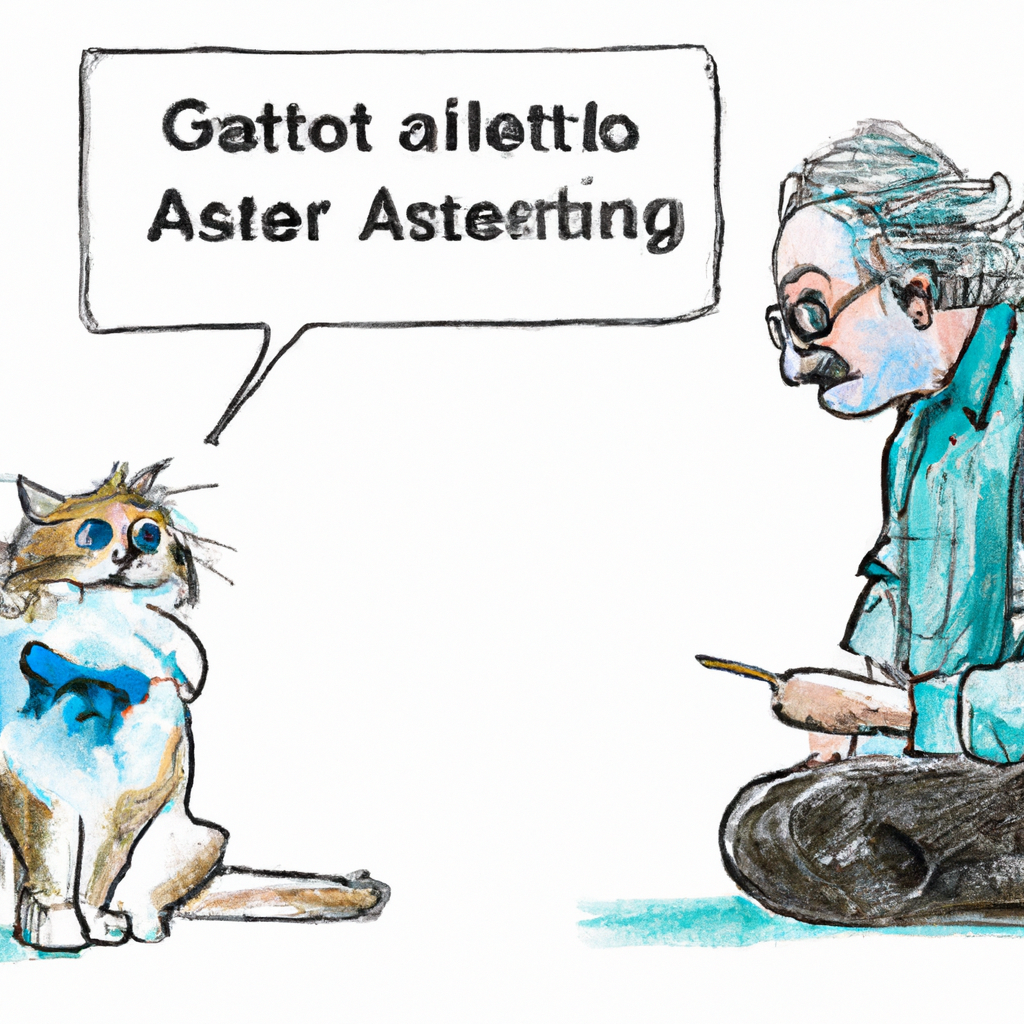
Title: A Beginner’s Guide to Understanding and Using Artificial Intelligence
Artificial Intelligence (AI) has transformed the way we live, work, and interact. From self-driving cars to personalized recommendations on streaming services like Netflix or Spotify, AI is increasingly becoming a part of daily life. For those who are new to this field and want to understand how it works or even want to start using it in their businesses or personal projects, here is an introductory guide.
Understanding Artificial Intelligence:
At its core, AI refers to machines that can mimic human intelligence processes such as learning from experiences (machine learning), recognizing patterns (deep learning), understanding natural language processing (NLP), solving problems and making decisions.
Machine Learning: This is the method by which a system learns from data input without being explicitly programmed. It uses algorithms that iteratively learn from data allowing computers to find hidden insights without being programmed where exactly they should look for.
Deep Learning: A subset of Machine Learning that makes computations with ‘neurons’ in vast neural networks built like our brains. Deep learning models excel at identifying patterns in unstructured data such as images or sound files – making them perfect for tasks such as facial recognition software.
Natural Language Processing: NLP involves teaching machines how humans communicate – written text primarily but also spoken word often gets processed through NLP techniques too!
How Does One Start With AI?
For beginners looking into getting started with artificial intelligence there are several places one might consider starting:
1) Online Courses – Websites like Coursera offer comprehensive courses on topics related directly towards understanding more about artificial intelligence including machine & deep learning both free-of-charge along with paid certificates available upon completion if desired!
2) Books – There exist numerous books aimed specifically toward providing readers some basic knowledge regarding all aspects concerning these technologies; many include practical exercises which help solidify concepts learned throughout each chapter read thus far
3) Tools – Python remains most popular programming language used amongst AI developers due largely part its simplicity, versatility and wide range of libraries like TensorFlow or PyTorch.
Example Use Cases:
For example, if a beginner wants to create an email spam filter using machine learning. The first step would be collecting data – in this case emails marked as ‘spam’ and ‘not spam’. This dataset is then divided into training set (used to train the model) and test set (to evaluate how well the model works). A Machine Learning algorithm such as Naive Bayes can be trained on this data. Once it’s correctly identifying spam in your test set with high accuracy, you have a working AI!
Another example for using deep learning could be image recognition. Suppose one needs to build an app that identifies different types of flowers from images uploaded by users. Here Convolutional Neural Networks (CNN), a type of Deep Learning algorithm specifically designed for image processing might come handy!
Remember: Making mistakes is part of the process when starting with Artificial Intelligence – don’t get discouraged if things aren’t perfect right away! Patience along with continuous practice will eventually lead towards mastering these complex yet fascinating technological advancements currently reshaping our world today.
In conclusion, understanding artificial intelligence may seem daunting at first glance but once broken down into its core components — machine learning, deep learning & natural language processing — it becomes less intimidating overall especially given numerous resources available online today aimed at helping beginners navigate through their initial stages within this rapidly evolving field!
Artificial Intelligence (AI) can be seen in the use of chatbots by businesses. Chatbots are AI systems that are designed to interact with humans in their natural languages. These interactions often occur through messaging applications, mobile apps, or over the telephone.
A potential use for AI-powered chatbots is in customer service. Instead of having human employees handle every single inquiry from customers, companies can employ an AI system to deal with common questions and problems. For example, if a customer wants to know business hours or return policies, they could simply ask the chatbot instead of waiting on hold for a representative.
This not only saves time for both parties but also allows human customer service representatives to focus on more complex tasks that cannot be handled by an AI system. Furthermore, as these systems learn from each interaction they have with users over time using machine learning algorithms – another branch of artificial intelligence – their ability to respond accurately and efficiently improves significantly.
Here’s a Story about Gato Rico
Once upon a time in the heart of Silicon Valley, there lived an extravagant tuxedo cat named Gato Rico. He wasn’t just any ordinary feline; he was known as the richest cat around town. Now you might wonder how this four-legged creature amassed such wealth. Well, it all started when his human companion and tech mogul left him an enormous fortune.
Gato Rico had everything any kitty could dream of – diamond-studded collars, gourmet salmon dinners every night, and even his own custom-built luxurious mansion equipped with state-of-the-art technology. But what set him apart from other rich pets was not only his vast wealth but also his innovative use of artificial intelligence.
One day while lounging on a plush velvet cushion beside the fireplace sipping (or rather lapping) some expensive milk imported from Switzerland, he noticed something strange about Mr Whiskers – one of many robotic servants at hand to cater to all Gato’s needs using AI technology developed by his late owner.
Mr Whiskers had been acting peculiarly lately: forgetting things like warming up Gato’s dinner or putting out fresh water for him right after nap time which is usually punctual down to milliseconds due to their precise AI programming! This simply wouldn’t do for our furry friend who enjoyed living life lavishly without lifting so much as a paw!
So being intelligent himself (and having access to billions), he decided that it was high time someone put these advanced technologies into good use – more specifically towards improving Mr Whisker’s performance! So off went our wealthy whiskered hero into ‘The Lab’-a room filled with endless gadgets and gizmos that would make even Tony Stark jealous!
With little knowledge about actual coding but armed with determination (and unlimited resources), he began exploring various programs until finally coming across “Catnip Code”-the perfect software designed by none other than his late owner! It was an AI program that could learn, adapt and improve over time. “Eureka!” thought Gato.
What followed were several comedic instances of trial and error – ranging from Mr Whiskers suddenly developing a fondness for dancing ballet to speaking in Shakespearian English! But our feline protagonist wasn’t one to back down so easily.
After weeks of tinkering with the Catnip Code, he finally nailed it. The result? A super-efficient robotic servant who not only remembered all chores but also anticipated Gato’s needs before even he realized them!
In no time at all, word about this ‘furry genius’ spread throughout Silicon Valley. Not too long after that, tech companies started approaching him (or rather his handlers) seeking advice on improving their own AI technology using the Catnip Code concept. This led to even more wealth accumulation for our smart kitty!
And thus life went on as usual in the mansion – filled with delicious food and luxurious naps – while Gato Rico continued living up to his name by being both rich…and incredibly innovative!






